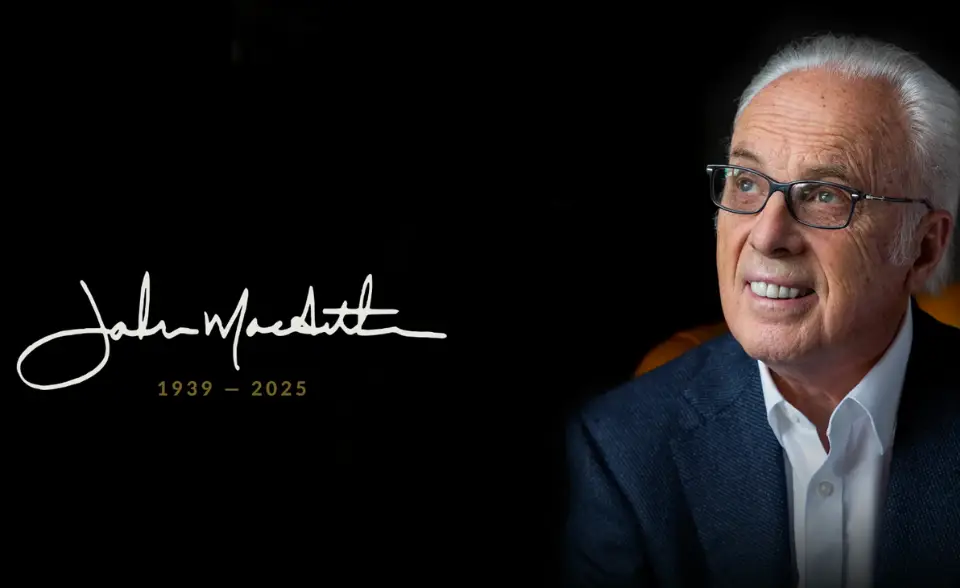
2 Timothy 2:4 (LSB)
No soldier in active service entangles himself in the affairs of everyday life, so that he may please the one who enlisted him as a soldier.This essay is a response to Joey DeRuntz’ post: https://www.mastersbiblechurch.com/blog/a-rejoinder-to-don-green-a-biblical-and-theological-defense-of-co-belligerency
Site accessed 10/6/2025
It is in vogue to have political opinions. It is sad that the world has to choose to silence those who are making a good point about certain segments of politics, government, business, and/or education. Generally speaking, there are some very good points being made by many people in our world today.
There is an “however” to all of this, though. For the pastor, who is to be the example to all Christians of how to conduct themselves in faith in Jesus Christ (Hebrews 13:7), the reality of the kingdom of Christ is a more critical matter than all the issues limited to this life combined.
One illustration would help.
Luke 13:1–5 (LSB)
1 Now at that same time there were some present who were reporting to Him about the Galileans whose blood Pilate had mixed with their sacrifices.
2 And Jesus answered and said to them, “Do you think that these Galileans were greater sinners than all other Galileans because they suffered these things?
3 “I tell you, no, but unless you repent, you will all likewise perish.
4 “Or do you think that those eighteen on whom the tower in Siloam fell and killed them were worse offenders than all the men who live in Jerusalem?
5 “I tell you, no, but unless you repent, you will all likewise perish.”
The response of Jesus Christ to the news that some people from his home region of Israel is shocking, even “triggering,” if you read it with contemporary glasses. Those who are so-inclined to equity and justice in the “social sphere” would expect Jesus to crossover to that same sphere and make a comment about the atrocity. It would be expected that He would decry such travesty.
Instead, He forced His audience to consider that the proper “sphere” to consider, the only one that matters, is the so-called “holy sphere.” That is, Jesus’ response was a response that gave the priority of importance to the realities of the impending judgment of God. In doing so, He confronted the common misconception that terrible things happen to terrible people. That rationale gives way to a moral superiority that existed in every “sphere” of Jesus’ day. In fact, it is alive and well in the Christian Nationalism movement also. There seems to exist a moral superiority that elevates a Nationalist above the simple-devoted Christian who just lives in light of the Rapture, a commendable hope by the Apostle Paul.2
Spheres
There are some who want to justify the Christian entanglement in the political/civil “sphere(s).” They will say, for example, that it is possible (even mandatory) to crossover from the holy sphere into the political sphere. They assert that this can be done without marring one’s witness to Christ. The ideology then continues to cite examples from the Old Testament (OT) predominantly, as well as a few from the New Testament (NT). Examples of Daniel, Joseph, and Isaiah abound, as do Paul and Peter. “Involvement in the politics of their day are catalysts and patterns for our own involvement in the politics of our day,” they say.
But, did you notice what I wrote? I made a statement, a conclusion, based upon a wrong interpretation of Scripture, yet a right enforcement of an ideology, and made it sound appealing. I said, “Their (Daniel’s, Joseph’s, et al) involvement in the politics of their day are catalysts for our own involvement in the politics of our day.” To the average reader, this sounds motivating, even noble. But, the problem is that the above-mentioned men were not “involved in the politics of their day.” The condition of their involvement was forced subjugation, as in the case of Daniel and Joseph. The involvement of Peter and Paul, however, was a different kind of subjugation. It was the conscription in service to the Commander-In-Chief, Jesus Christ, the Lord of Hosts.
In the case of the OT prophets, they were mandated by God to confront the error of the kings and rulers of their day (primarily in Israel) concerning their personal and national sins (e.g. Isaiah). In the case of Peter and Paul, they were commanded to testify against the rulers and people of Rome and Israel because of their rejection of the Messiah. The pivot point of their confrontation was not societal good, cultural improvement, or anything of that sort. The motivation for the confrontation was the impending judgment of YHWH upon the nations for their sin agains the One who created the nations for the Son (Psalm 2:1-3, 8, 9-12).
To separate the existence of men into “spheres” of responsibility and utilization, is to confound an otherwise simple fact-the world is coming to a horrible end3. It is, in fact, currently in ruins by Satan, and is subject to the imminent final death penalty of God. How’s that for a “sphere”? In a sinking ship, the issues of party affiliation, culture, good and bad don’t matter. It is all going down. The urgency, and warning, of the doomed ship is the vital issue.
Those advocating for Christians, particularly pastors, to separate the world around them into spheres of authority and responsibility (i.e. Christian Nationalism) make for a nice and tidy world. However, like the proverbial chairs on the deck of the Titanic, in the end, those ideological distinctions are simply not the pressing issue.
Entanglement
2 Timothy 2:4 (LSB)
No soldier in active service entangles himself in the affairs of everyday life, so that he may please the one who enlisted him as a soldier.
My call to Christians, especially pastors, is the same as Paul’s admonition to Timothy. As quoted above, the faithful servant of God must not get wrapped up into sphere-splitting.
The command to Timothy is a simple one. No soldier commissioned in the military entwines himself between the military and “everyday life.”4 The illustration is a man who is conscripted into military service, which has clear and supra-normal objectives in view. The everyday life of civilians simply does not have those objectives. Therefore, to attempt to merge, weave, or otherwise obfuscate the two is not a faithful soldier. It is against the rules of the military for a man to be involved with civilian life while he is at war.
More specifically, Paul urges Timothy to play the “good soldier” just as Paul did (v.3). Timothy is to find, and conscript into service, those men who are faithful to the gospel of Jesus Christ, and teach them the things that Paul had taught him. And, by illustration, Paul uses axiomatic truths from the realms of military, athletic competition, and farming. Each scenario has rules, guidelines, and general truths that go without saying. The military has singular dedication. The athletic competition has rules of competition. The farmer works hard and is compensated first.
Paul’s wording is clear. To “entangle” means to be “intertwined with,” “to weave together with,” or even “to braid.” It is the idea that by making one thing involved into another thing is to effectively undo one, or both, of the things. Or, to put it another way, to attempt to separate the world into spheres is to attempt to organize the gospel into just one of multiple loyalties. Like the soldier who cannot involve himself in civilian life while he is at war, the pastor must not attempt to weave the gospel into the structures of this dead, satanic,5 world. Like the Lord said, “…you will all likewise perish…” That is the issue.6
Such loyalty by Paul landed him in jail for the crime of preaching the Word.7 In fact, Timothy also learned the lesson and landed himself in jail as well. Timothy, though, was released back into the war.8 Paul was released into heaven. Both fought the good fight. They were dedicated, committed, and at the appearance of being unnecessarily radical, they were uniformly allied to the cause of the gospel. There was no room in their behavior for nice and tidy spheres of authority. They were simply called to stand before all men, rulers, kings, Jews, Gentiles, with the same message of the Messiah and announce said message of His coming again to judge and to rule. The call to all men is to prepare the way, and make His paths straight.
Conclusion
In the end, the desire to separate the world into spheres and to construct a perspective that makes a pastor able to conduct himself in each sphere, is to desire to avoid the stigma, or even the persecution, that inevitably comes with the preaching of the gospel. This avoidance of man’s displeasure, I believe, is at the heart of this movement, this so-called Christian Nationalism. And, if that is true, men who imbibe this ideal are unfaithful to the gospel in the end because you cannot share the authority of the One who called them into service with the authority given to men in this dark world.
For the man of God, and indeed every Christian, there is only one Authority-Christ.9 That One has forced us into service. He has given us the command and the message. All men, all men, are commanded by our Superior to bow to our message.10 To give our authoritative stance to other ideologies and movements, however noble, good, and socially beneficial they may be, is to go AWOL in the war. A Christian Nationalist, who has become used to civilian life, cannot understand this assertion, and will not believe what I say. But, it is true. According to what Paul instructed Timothy and what Timothy was to instruct other faithful men, singular commitment to the gospel of Jesus Christ in every walk of life is the definition of faithful.
This is why we cannot platform false religion.
- 1 Thessalonians 1:10 ↩
- 1 Corinthians 7:31 ↩
- This word refers to the means of earning a living. It is a reference to the activities that are fundamental to an occupation. ↩
- Luke 4:5-6 ↩
- It is important that we don’t talk ourselves into the excuse that the world is not the church. No kidding. Whoever said it was? I am sure Paul knew that (he did write the books of Ephesians and Colossians, after all). Paul, knowing the different between the world and the church, still said, “Do not get entangled in the affairs of everyday life.” ↩
- 2 Timothy 2:9 ↩
- Hebrews 13:23 ↩
- 1 Corinthians 11:3 ↩
- Acts 17:30-31 ↩






